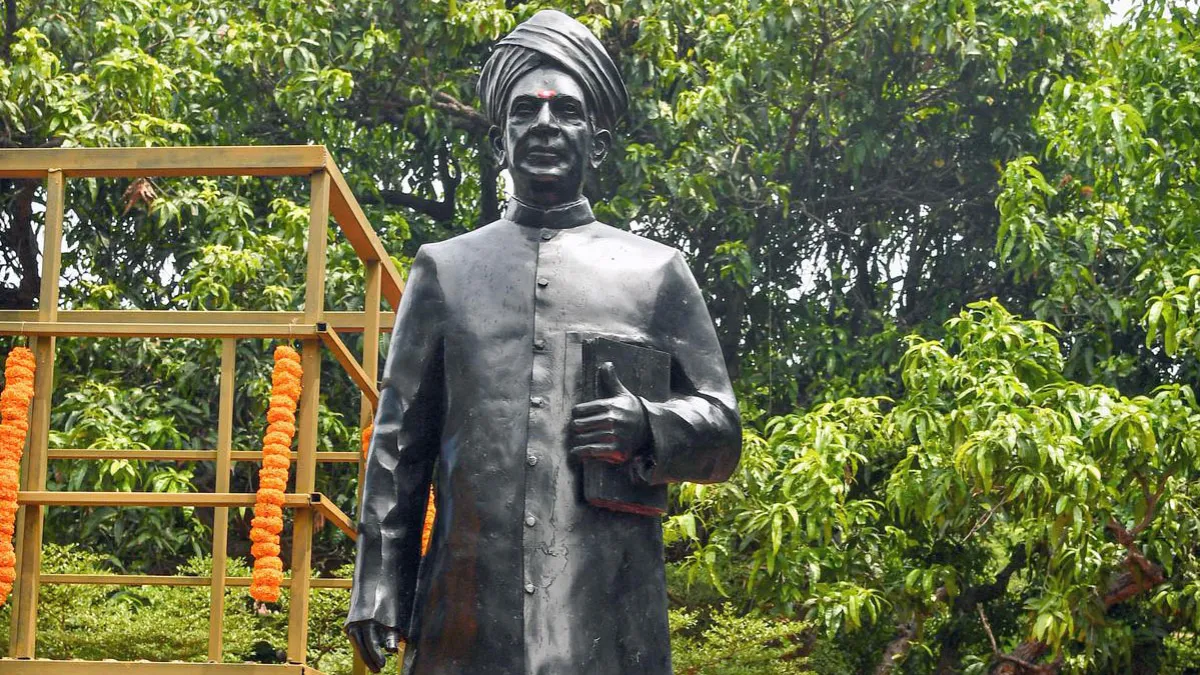
To honour the birthday of Sarvepalli Radhakrishnan, one of India's foremost educators who later rose to become the first Vice President and second President of the Indian Republic, September 5 is observed as Teachers' Day. Though the nation owes a great deal to this intellectual giant, the "City of Destiny" (Visakhapatnam) and especially Andhra University, the oldest and largest public university in the remaining state of Andhra Pradesh, should honour his contribution to transforming the institution into a world-class temple of learning both during his lifetime and in the years to come.
After Dr. C.R. Reddy, the university's founding vice chancellor and another outstanding educator, resigned in 1931, Dr. Radhakrishnan assumed control of the fledgling institution. Radhakrishnan's core group at AU included Nobel Laureate C.V. Raman, who reportedly commented, "In 1934, it was like a story from the Arabian Nights: Radhakrishnan had waved his wand and a university complete with buildings and staff had sprung up."
Even before Sarvepalli was appointed vice chancellor of AU, in December 1927, he was asked to give the opening convocation address by Prof. C.R. Reddy, the vice chancellor at the time. This speech served as the model for Sarvepalli's overall strategy towards the bright young minds of India. He had discussed mental freedom, an attitude of self-criticism, and a rejection of tradition. When he gave that speech, he predicted the future and cautioned against Telugu replacing English as the language of teaching. He expressed his disapproval of the Andhra politics that complicated the establishment of the institution in this region of the State and said bluntly: "If we wash our hands, we waste water and become unclean. You cannot argue that Andhra University is a subpar university, if not a failure, and have a tight budget.
Sarvepalli was essential in establishing the College of Arts and a postgraduate degree in a course in history. In his very first senate meeting, he had obtained the appointment of personnel for the departments of English, Telugu, French, and History. The Department of Chemical Engineering, which is currently known as the Department of Philosophy, Religious Studies, and Sugar Technology, was also established by him.
Humayun Kabir, Hiren Mukherjee, prominent mathematician S.C. Chawla from Lahore, and German Professor Ludwig Wolf, who was banished by Adolf Hitler, are some of the top teaching skills he personally hand-picked after travelling the length and width of the nation. John Matthai and Krishna Menon were also invited, but they declined due to other commitments. His most recent hires include T.R. Seshadri, a doyen of chemistry, and famous economist V.K.R.V. Rao.
Additionally, he appointed Dr. C.V. Raman as a member of the syndicate to create the scientific curriculum and serve as an honorary professor, as well as Mokshagundam Visvesvaraya to assume responsibility for the engineering and technology courses. In addition to making significant academic contributions and securing the funding from the Maharajahs and the then-government to extend the campus and construct the structures, Sarvepalli also began a tennis court, a cricket pitch and a football pitch. He negotiated to coach the university cricket team in 1932 with Col. C.K. Nayudu, who was then India's test captain, but his hasty departure prevented it from happening.
A circular building on the beach road where Sarvepalli and his family resided was demolished by the relevant authorities in the face of fierce opposition from the Vizagites who sought to turn the structure into a historic landmark. The endowment talks were initiated by him, and he also asked M.K. Gandhi to give a lecture. Gandhi was invited by Rabindranath Tagore, who came and gave a lecture titled "The Man" even though he was unable to attend.
